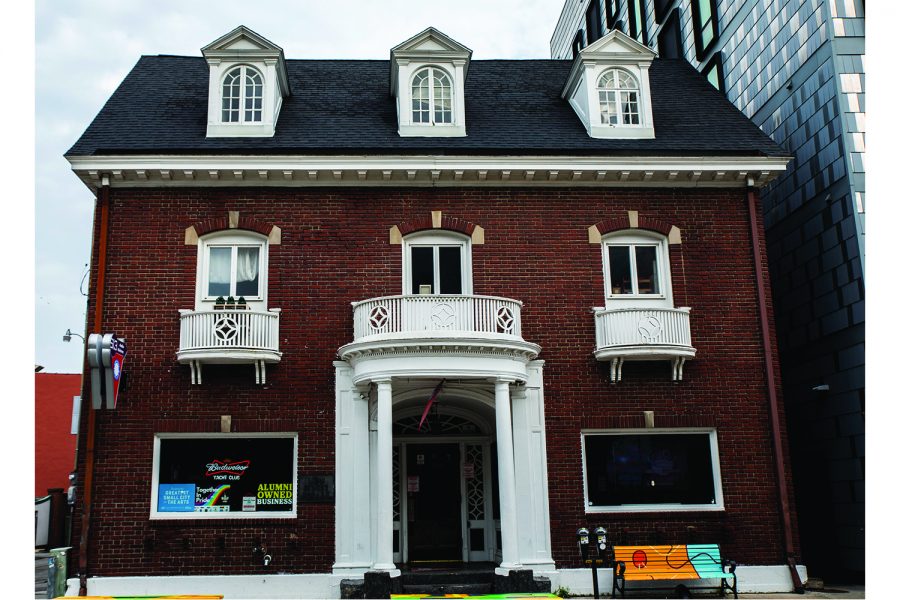Downtown Iowa City recognized for its ‘historic fabric’
Former mayor and city planners weigh in on the long process to put Iowa City on the National Register of Historic Places.
Studio 13-15 at 13-15 S. Linn Street, seen on Wednesday, June, 30, 2021. The building was built in 1917 and was known as the Hohenschuh Mortuary.The building now stands as part of the Iowa City Downtown Historical District.
July 13, 2021
Iowa City has made its way onto the National Register of Historic Places after four years of working toward accomplishing that goal.
The register is an honorable designation that comes with economic benefits, according to a city news release on June 25. Since 2017, the city has worked with architectural historian Alexa McDowell from AKAY Consulting, gathering data and holding several meetings with the community and the Iowa City City Council.
Former Iowa City Mayor Jim Throgmorton said he expected the city would eventually make it onto the register.
“I was very pleased because it has finally happened,” Throgmorton said. “Now individual property owners can get financial support.”
After this news broke, he shared his excitement on Twitter, but also indicated that more work can be done going forward to recognize the downtown area.
“The real question is whether or not we will make a local historic landmark district downtown, primarily because even under national registration individual property owners can still demolish buildings unless it is local,” Throgmorton said.
As previously reported by The Daily Iowan, in 2017, a survey approximated 115 historically significant properties. At the time, the properties surveyed are located within the boundaries of Iowa Avenue on the north, Gilbert Street on the east, Burlington Street on the south, and Clinton Street on the west.
During a 2017 city council meeting, several community members had brought up the potential ramifications from getting Iowa City a spot on the register, such as inhibiting future developments and renovations.
Bringing the local district status to Iowa City will prevent demolition for buildings on this property, in addition to providing similar benefits the National Register listing brings.
Senior planner Anne Russett, who had a significant hand in landing Iowa City on the register, said other than the historical districts, she and her team are responsible for planning the future of Iowa City. They work on long range plans for the city’s development and review applications for rezoning, she said.
“The first part was a survey to determine if there was eligibility in the district. After looking at the surveys, we found we were eligible and went forward to pursuing the National Register,” Russett said.
The economic benefits of Iowa City’s presence on the National Register of Historic Places include a potential tax credit for property owners, financial support if needed, and a possible economic benefit from tourism.
“Listing us could draw attention to what is key to the city, which is the historic downtown and the college. This makes us distinctive,” Throgmorton said.
As of right now the city is not doing anything going forward with this process of the National Register.
“There is no next step at this point, the final process was to get our name on the National Register,” Russett said.
This whole process is a huge honor for Iowa City, not just because of the benefits, but because of the work it commends, Kevin Boyd, the Chair of the City’s Historic Preservation Commission, said.
“The listing of Downtown Iowa City on the National Historic Register of Historic Places is the culmination of years of work by preservation advocates,” said Boyd. “Downtown Iowa City is a special place, and the historic fabric is now honored as part of the listing.”



